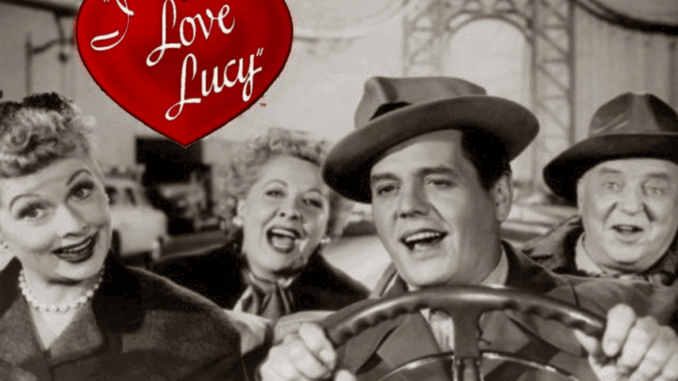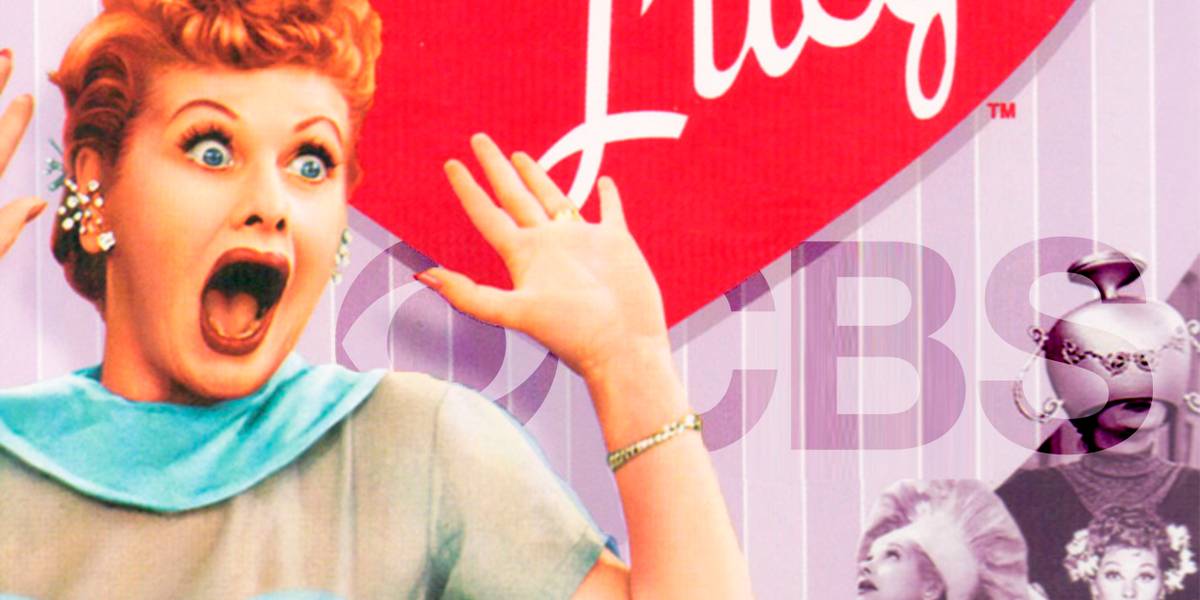
Lucille Ball Didn’t Just Make Us Laugh — She Made Us Rethink Everything
At first glance, I Love Lucy is the classic 1950s sitcom. It’s all slapstick, misunderstandings, and that unforgettable, high-pitched cry of “Riiiiiicky!” It’s a show defined by laughter, mistaken identities, and Lucy Ricardo’s increasingly wild schemes to break into showbiz or avoid domestic disaster. But beneath the surface of all those comedic antics, I Love Lucy was quietly doing something revolutionary — especially for women.
What made I Love Lucy more than a sitcom wasn’t just its innovation in television production (which was indeed historic), but its subversion of gender roles, its stubborn refusal to play nice, and Lucille Ball’s bold reimagining of what a woman could be on TV. Lucy didn’t just want more out of life. She demanded it — loudly, hilariously, and unapologetically. In 1951, that was nothing short of radical.
A Housewife Who Refused to Stay in the Kitchen
At a time when television largely reflected post-war domestic ideals — with women portrayed as obedient, soft-spoken homemakers — Lucy Ricardo was a hurricane in heels. She wasn’t content with baking, cleaning, or being arm candy to Ricky’s nightclub dreams. Lucy wanted in. She wanted a career, a voice, and most of all, recognition.
Episode after episode, Lucy charged into male-dominated spaces. She snuck into Ricky’s shows, disguised herself to join business meetings, auditioned under fake names, and frequently took on work just to prove she could. And while the plots were framed as comedic chaos, the underlying truth was crystal clear: Lucy wanted agency.
Even when her schemes failed, they weren’t failures — they were resistance. Each gag was a rebellion against the narrow roles women were boxed into. And because the show used comedy, it got away with saying things 1950s society wasn’t ready to hear — but needed to.
Behind the Scenes: Lucille Ball, the Business Genius

Lucille Ball wasn’t just a performer. She was one of the most powerful women in television — and not just because of I Love Lucy‘s ratings. With husband Desi Arnaz, she co-founded Desilu Productions, which pioneered the multi-camera format with a live studio audience — a standard that still defines sitcoms today.
When Ball took over Desilu after her divorce, she became the first woman to run a major TV studio. Under her leadership, Desilu greenlit Star Trek, Mission: Impossible, and other game-changing shows. She didn’t just star in TV history. She made it.
What’s more, Lucille Ball refused to be separated from her real-life identity as a mother and wife. When she got pregnant with her second child, she didn’t hide it from the public — she wrote it into the show. That led to I Love Lucy becoming the first American TV show to openly address pregnancy, even if the word “pregnant” was still banned from being said on air. That subtle rebellion paved the way for more realistic portrayals of women’s lives in pop culture.
Lucy and Ricky: A Marriage That Told the Truth
While most 1950s shows depicted couples sleeping in twin beds, Lucy and Ricky’s marriage was fiery, complex, and — for the time — daringly intimate. Their arguments weren’t always cute. Sometimes, they were raw. Ricky lost his temper. Lucy fought back. There was love, but also real tension.
This wasn’t sanitized perfection. It was something more recognizable to viewers — especially women. Lucy didn’t always “win,” but she never stopped challenging Ricky. And Ricky, to the show’s credit, loved her not despite her ambition and chaos, but because of it.
In an age of male-dominated storytelling, that kind of romantic equality wasn’t common. Lucy and Ricky weren’t just married. They were partners — though often unevenly — and it was through comedy that the show explored what partnership actually means.
A Feminist Icon Disguised in Laughter
“I Love Lucy” never used the word “feminist.” That word hadn’t yet become mainstream. But if feminism is about women seeking equality, opportunity, and self-expression, then Lucy Ricardo was one of the earliest feminist icons on television.
She questioned everything. She failed gloriously and refused to be embarrassed. She pushed back against Ricky, against society, against the expectations of what a housewife “should” be. And millions of Americans loved her for it.
Even today, when we rewatch I Love Lucy, we don’t just laugh at the candy factory or the grape-stomping scene — we feel something. We recognize a woman who refused to shrink herself to fit the frame.
Why I Love Lucy Still Matters in 2025
Seventy years after its premiere, I Love Lucy is still in syndication. It’s still studied in film and media classes. It still has an active fanbase that spans generations. But most of all, it still resonates — because the conversations Lucy started about gender, work, marriage, and power are far from over.
We now live in an age of complex female TV characters, from The Marvelous Mrs. Maisel to Fleabag to Abbott Elementary. These women are allowed to be messy, loud, ambitious, and complicated — just like Lucy was. Only now, we call it prestige. Back then, Lucy Ball called it Tuesday night.
In the end, I Love Lucy is more than a relic. It’s a roadmap — of how laughter can challenge norms, how storytelling can spark rebellion, and how one redheaded tornado reshaped what it meant to be funny and female.